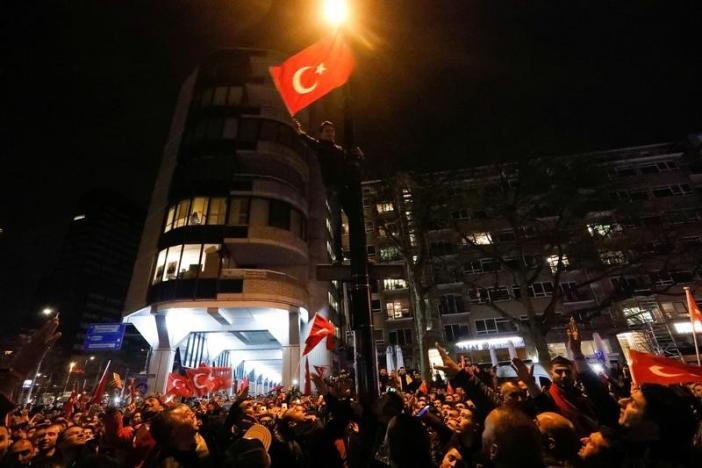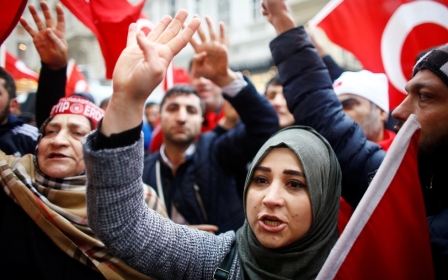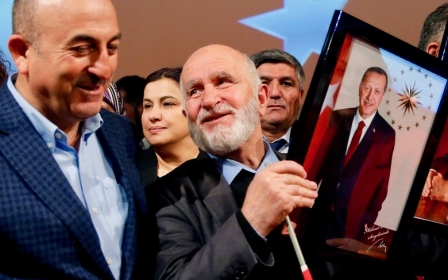Dutch cabinet says Turkey's deputy PM not welcome to visit

The Dutch cabinet said on Friday Turkey's deputy prime minister Tugrul Turkes was not welcome to visit the Netherlands for a ceremony among Turkish expatriates to commemorate the anniversary of last year's failed military coup in Turkey.
Relations between the NATO allies deteriorated sharply in March when the Dutch, on the eve of their national election, barred Turkish ministers from speaking at rallies of ethnic Turks in the Netherlands, citing security concerns.
President Tayyip Erdogan, who wanted to encourage Turks living in Europe to back his plans in a referendum for increased powers, accused the Netherlands of acting like a "banana republic" and his foreign minister described the country as the "capital of fascism".
"In view of the current condition of the bilateral relationship... the cabinet finds a visit by the Turkish deputy prime minister or any other member of the Turkish government undesirable," the Dutch cabinet said in a statement.
"This decision is logical in view of the events in March," it added.
Turkey has said it plans to stage commemoration events in several European cities that have a large ethnic Turkish diaspora, and the foreign ministry in Ankara criticised the Dutch stance.
"The statement... is telling in terms of this country's understanding of democracy", Turkish foreign ministry spokesman Huseyin Muftuoglu said.
Military officers attempted to overthrow Erdogan and his government last July in a coup attempt that quickly collapsed.
Erdogan accused European governments of being slow and insufficiently vigorous in their condemnation of the coup, in which more than 240 people were killed.
Since then, Turkey has jailed more than 50,000 people pending trial and suspended or dismissed some 150,000, including soldiers, teachers and civil servants, over alleged links with the exiled Muslim cleric Ankara blames for the failed coup.
The large-scale purges have added to the strains in Turkey's relations with Western countries, which have stepped up their criticism of Ankara's record on democracy and human rights.
Turkey says the crackdown is necessary because of the gravity of the security threats facing it.
Middle East Eye propose une couverture et une analyse indépendantes et incomparables du Moyen-Orient, de l’Afrique du Nord et d’autres régions du monde. Pour en savoir plus sur la reprise de ce contenu et les frais qui s’appliquent, veuillez remplir ce formulaire [en anglais]. Pour en savoir plus sur MEE, cliquez ici [en anglais].




